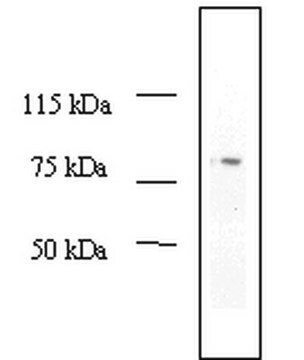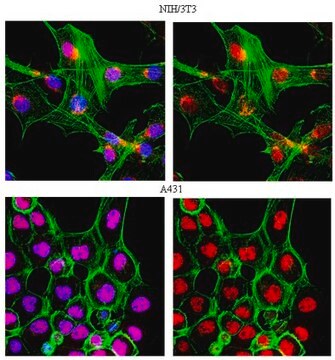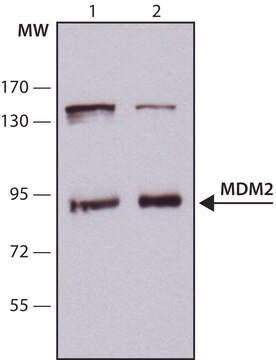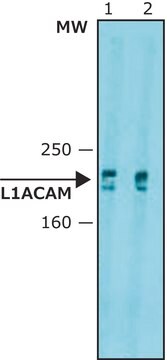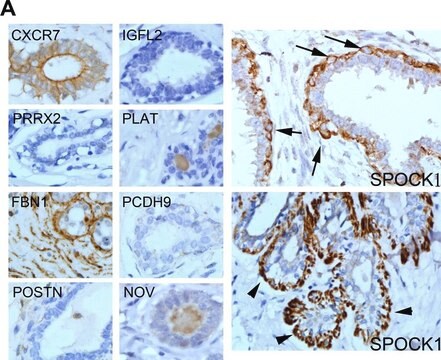OP143
Anti-MDM2 (Ab-3) Mouse mAb (4B11)
liquid, clone 4B11, Calbiochem®
Synonym(s):
Anti-Ubiquitin Protein Ligase, Anti-p53 Binding Protein, Anti-Murine Double Minute Chromosome-2
About This Item
Recommended Products
biological source
mouse
Quality Level
antibody form
purified antibody
antibody product type
primary antibodies
clone
4B11, monoclonal
form
liquid
does not contain
preservative
species reactivity
mouse, human
manufacturer/tradename
Calbiochem®
storage condition
OK to freeze
avoid repeated freeze/thaw cycles
isotype
IgG2a
shipped in
wet ice
storage temp.
−20°C
target post-translational modification
unmodified
Gene Information
human ... MDM2(4193)
mouse ... Mdm2(17246)
General description
Immunogen
Application
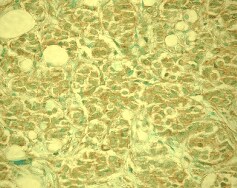
Immunoblotting (2 g/ml, chemiluminescence)
Immunofluorescence (1 g/ml)
Immunoprecipitation (1 g/reaction)
Paraffin Sections (2.5 g/ml, heat pre-treatment required)
Packaging
Warning
Physical form
Reconstitution
Analysis Note
A549 cells
Other Notes
Barak, Y., et al. 1993. EMBO. J.12, 461.
Ladanyi, M., et al. 1993. Cancer Res.53, 16.
Leach, F. S., et al. 1993. Cancer Res.53, 2231.
Oliner, J. D., et al. 1993. Nature362, 857.
Momand, J., et al. 1992. Cell69, 1237.
Oliner, J. D., et al. 1992. Nature358, 80.
Fakharzadeh, S. S., et al. 1991. EMBO. J.10, 1565.
Legal Information
Not finding the right product?
Try our Product Selector Tool.
Storage Class Code
10 - Combustible liquids
WGK
WGK 3
Certificates of Analysis (COA)
Search for Certificates of Analysis (COA) by entering the products Lot/Batch Number. Lot and Batch Numbers can be found on a product’s label following the words ‘Lot’ or ‘Batch’.
Already Own This Product?
Find documentation for the products that you have recently purchased in the Document Library.
Our team of scientists has experience in all areas of research including Life Science, Material Science, Chemical Synthesis, Chromatography, Analytical and many others.
Contact Technical Service